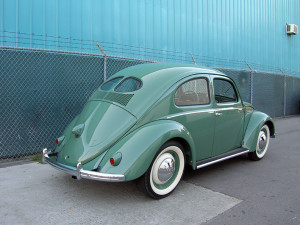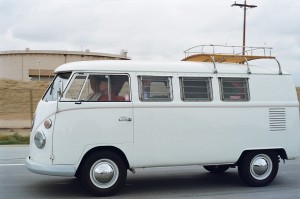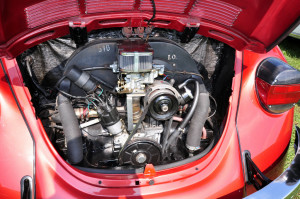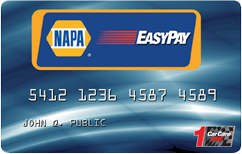Most vehicles on the road today are powered by a standard, water-cooled engine that requires the use of a coolant system to keep the temperature of the engine down. Yet a small percentage of cars, mostly older-model Volkswagens, use a basic air-cooled engine that does not require the support of a separate liquid cooling system.
 The Volkswagen air cooled engine is really all about simplicity both in how it works and how it is designed. By not relying on a separate cooling system to keep the engine temperature down, the air-cooled engine is completely self-reliant. It is also a simple system in and of itself and includes no frills or extras found on some modern high-powered engines today. With air-cooled engines, there’s never a need for cooling system repair or service as no such system exists on these vehicles.
The Volkswagen air cooled engine is really all about simplicity both in how it works and how it is designed. By not relying on a separate cooling system to keep the engine temperature down, the air-cooled engine is completely self-reliant. It is also a simple system in and of itself and includes no frills or extras found on some modern high-powered engines today. With air-cooled engines, there’s never a need for cooling system repair or service as no such system exists on these vehicles.
How Do Those VW Air Cooled Engines Work?
So now that we know air-cooled engines work without a supporting cooling system, how exactly do they keep cool? When the car is in motion, exterior air blows over the engine compartment. The air moves through the engine like a fan bringing the cooler outside air over the engine to lower the temperature.
The VW air-cooled engine is designed differently from standard water-cooled engines in that fans are used to blow hot air away from the engine bloc. It is also uses a wide surface-area layout so that more air is able to move over the hottest part of the engine to cool it faster.
Routine engine repair is so critical with air-cooled engines because they run on such high efficiency and have zero room for slack. Each component of an air-cooled engine is essential to its functioning so regular engine repair, oil changes and maintenance are an absolute must.
What Are Common Issues with VW Air Cooled Engines?
 The benefits of the VW air-cooled engines are many such as the simplicity of their design and functionality. Yet there’s no getting around the fact that water-cooled rather than air-cooled engines have been adopted by automakers the world over as the de facto engine style.
The benefits of the VW air-cooled engines are many such as the simplicity of their design and functionality. Yet there’s no getting around the fact that water-cooled rather than air-cooled engines have been adopted by automakers the world over as the de facto engine style.
While many well maintained air-cooled engines run for several hundred thousand miles, many others do not. VW air cooled engines tend to suffer from greater levels of overheating due to the air not cooling the engine sufficiently. This is particularly true during the summer and for those living in hot climates. When the air outside is hot itself, it is hard to cool the engine temperature fast enough.
There’s No Slacking of Engine Repair with Classic or Vintage VWs
The VW air cooled engine is all about simplicity, and for VW fans who are on top of their VW repairs and maintenance issues, they can catch a potential problem and get it taken care of right away. Yet for drivers of VW air cooled engines who don’t regularly check oil levels and temperature gauges, a small issue can become a major engine repair quickly. Overheating is the most common issue for Volkswagen air-cooled engines.
If overheating occurs with a fluid-cooled engine, every light on the dash will go off, the temperature gauge will be all the way to the right, coolant fluid may burst or spill out of the system, and you are practically forced to pull the car over.
For better or worse, the signs of overheating with an air-cooled engine are not so dramatic.
Because there is no cooling system in place and no overheating red flags, there’s a greater range for error. How hot is too hot? How do you know when to pull the car over? All things being equal, the engine should run at about 180-210 degrees. At 210-250 degrees, you can continue to drive it and unless you are really tuned in to the performance of your car, there’s really no way to know for sure that the engine is slowly overheating.
If your engine temperature reaches 280 degrees, you are well into the danger zone and cooling it becomes imperative. Again, the worst part is you may not realize the seriousness of what is happening because the car keeps driving. Your gauge may signal it is getting too hot if you look at it closely, but it may be off by 10-20 degrees and you may not be paying attention.
Driving While Overheating Often Leads to Engine Repair in San Diego
In this situation, which is somewhat common with VW air-cooled engines, you are damaging the engine and not knowing it. The oil becomes too hot and loses its viscosity. It becomes thick, gunky and tar-like – basically it no longer functions as it should.
Most likely, you need more than an oil change. Something is amiss with one of the engine components causing it to overheat to begin with. But again, the problem is in most cases, you aren’t aware of the problem until it is too late and you are towing the vehicle to a shop that does classic VW beetle repair.
So if you drive an air-cooled engine are in need of classic or vintage VW repair, don’t put it off. Staying on top of all your engine repair needs and finding a local, quality VW repair shop. This alone is essential to keeping your air-cooled engine running as long as possible.







